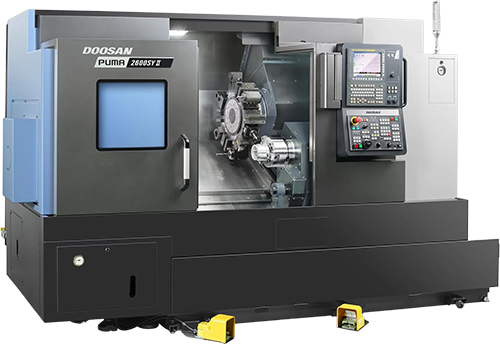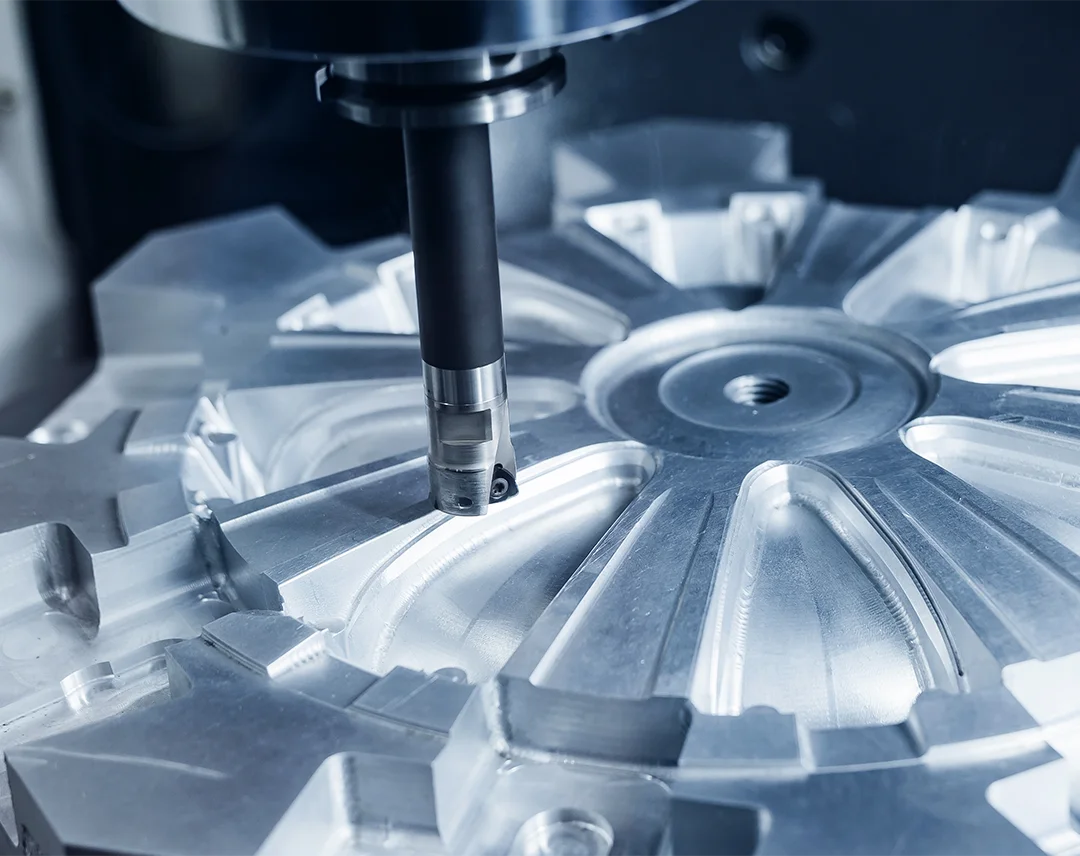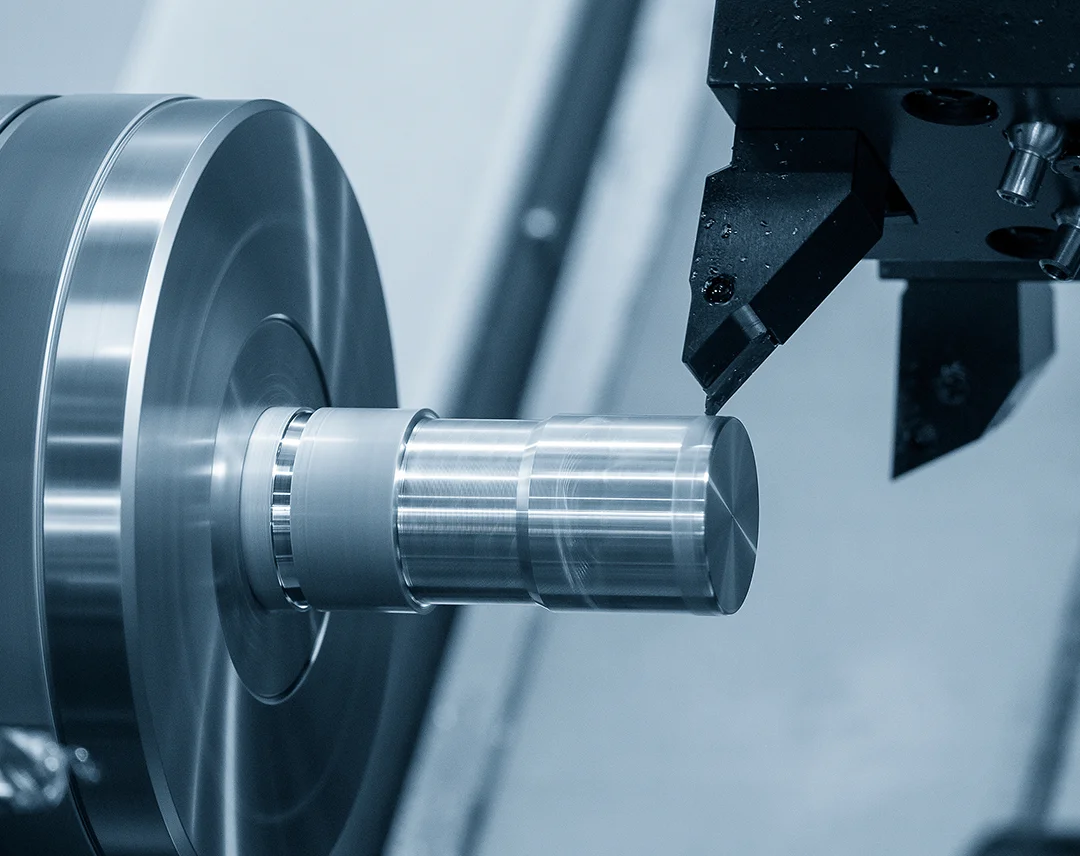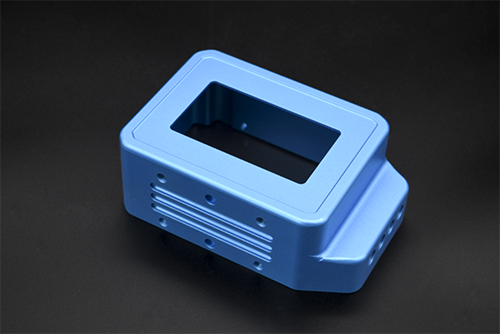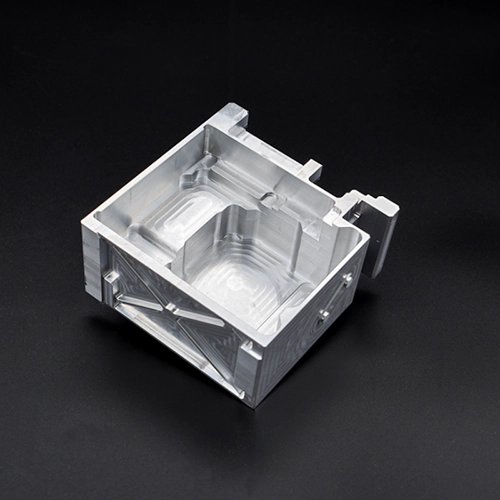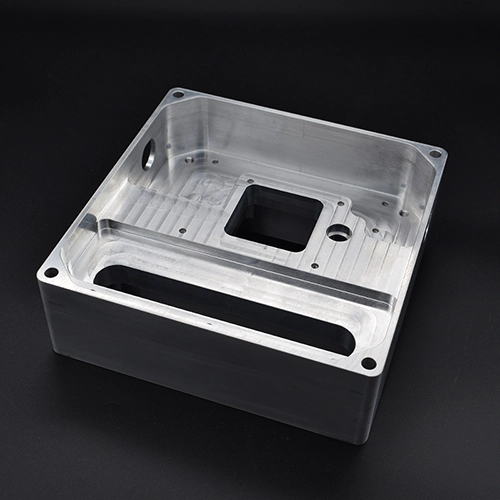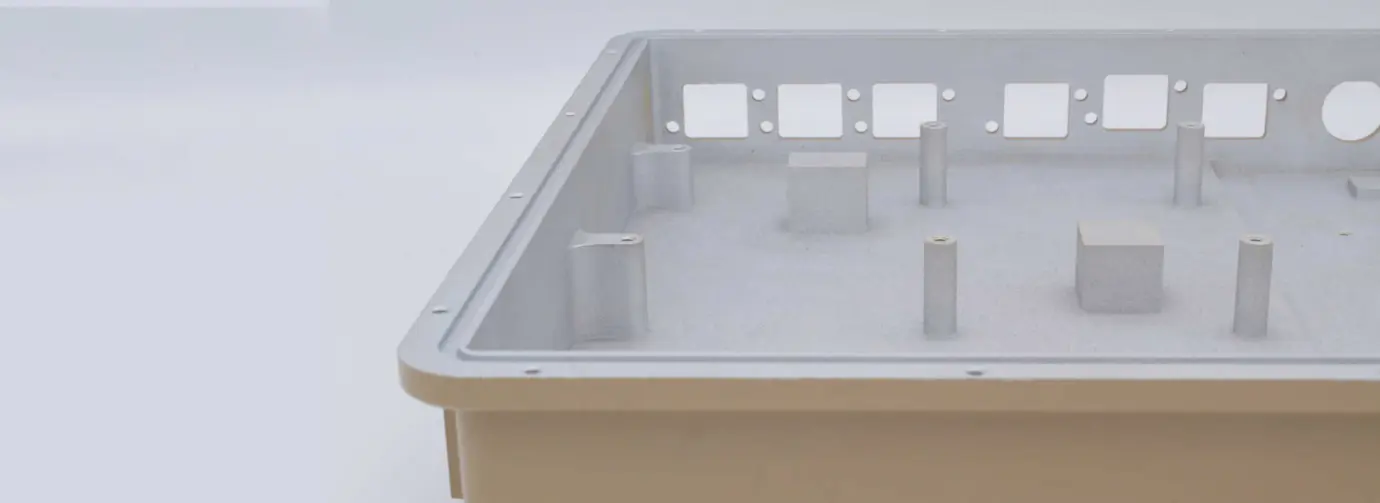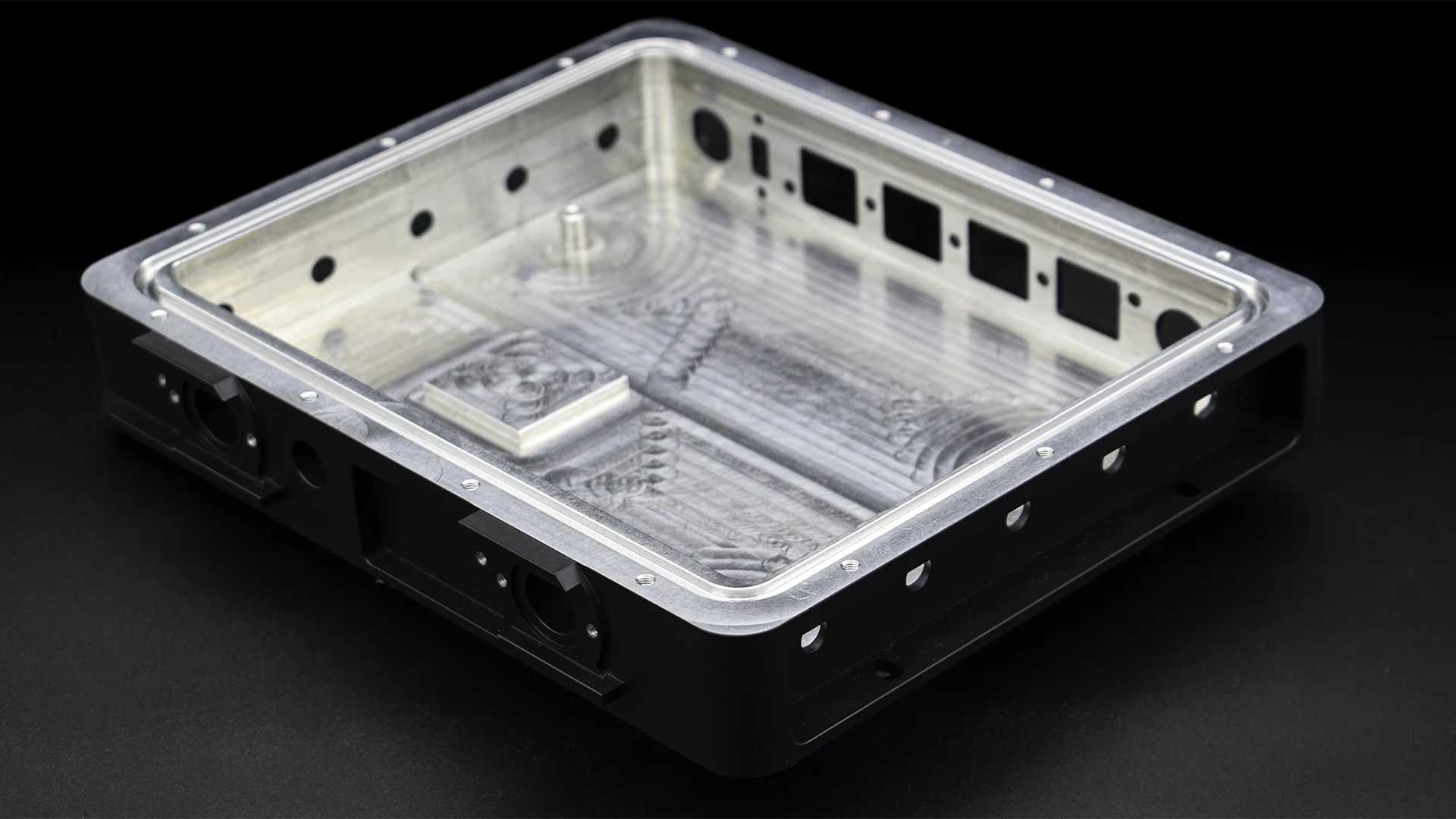Penta Precision machines custom enclosures for specialised applications for our customers all over the UK.
We manufacture both from raw material as well as modifying off the shelf moulded or specialist pre-moulded enclosures.
Combining our tool-making heritage and production machining expertise, we are also able to offer machining design advice, helping you take cost out of manufacture.
We can machine up to 20kg weight enclosures within our milling capacity range of 475 x 550 x 1000mm. If your requirement is outside our limits, give us a call and we will try and point you to someone who can help.
Need help with enclosure design? See our 'notes for designers' below or get in touch with the team.
Notes for designers
To aid machining, reduce processing time and thus cost, consider these factors in custom and bespoke enclosure design:
- Specify the largest internal corner radii as possible
- Keep wall cross sections thicker and more stable
- Keep tolerances as open as possible
- Where not critical, specify rougher internal surface machined finishes
- Minimise the number of faces with features that require machining to reduce set-up time
- Deep enclosures increase cutting tool length, reducing tool stability and slows processing time. Consider moving away from an “enclosure and lid” design to have a split line 50% down the depth of the enclosure, changing to a top and bottom half style assembly.
When your design is proven, we can help with final manufacturing machining and finish design so the specification is clear and can be manufactured repeatedly to the correct quality specification.
Materials we machine
Enclosure material selection
Factors to consider that affect the choice of enclosure material are:
- Indoor or exterior environment
- Mechanical loading
- Risk of collision
- Gas, chemical or dust contaminants
- Marine and salt water exposure
- WEEE Directive and regulations on waste management and recycling
Stainless Steel
Used where cleanliness and corrosion resistance is important due to cleaning regimes or harsh environmental factors. 304 (1.4301 and 1.4307) stainless is often specified for indoor clean room environments. Enclosures can tarnish and pit in environments open to the elements, salt water and where aggressive cleaning is performed. In such situations 316 stainless is a better choice. It takes 2 to 2.5 times the machining time to process stainless steel compared to aluminium, therefore making stainless steel an expensive and rare choice of material for bespoke machined enclosures for mechanically demanding applications.
Aluminum
Aluminium is a common choice of material for bespoke and custom machined enclosures. Aluminium is often considered to tackle the issue of noisy electronics and assist with EMC protection. Applications where corrosion resistance is an issue, aluminium should also be considered. Where applications have high mechanical demands stainless steel is naturally the more robust option. However designers do consider and choose to manufacture in aluminium with uprated wall thicknesses to meet the mechanical requirements being dictated.
Where volumes are higher, firstly consider off the shelf standard die cast enclosures which could be modified to suit the requirements of the applications. If volumes are high then investment in specific die cast tooling may be an option to achieve the lowest unit costs.
Plastic
Plastic is also a common cost effective choice for lightweight applications to enclose instrumentation, electronics, control gear and display screens. Plastic grade selection requires careful consideration to meet the needs of the application. Factors for consideration are:
- Temperature
- UV rating
- EMC protection
- Ambient environment characteristics
- Presence of chemicals
ABS and polycarbonate are the common grades for standard moulded enclosure manufacture.
Again, firstly consider off the shelf moulded options that could be modified by machining. The as moulded outside finish can be aesthetically acceptable and remove costly finishing processes.
We often perform secondary machining operations to “off the shelf” and bespoke plastic moulded enclosures, which due to restrictions in moulding cannot be formed to the finish size geometry and require additional machining to complete. These higher value enclosures typically need processing with great care as the outside finish is complete and aesthetically critical.
CNC equipment we use

Matsura MAM72-35V
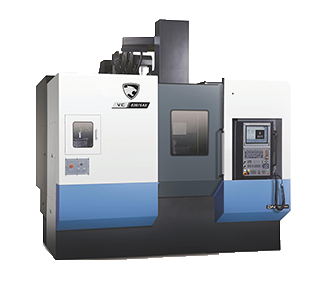
Doosan VC630 5AX
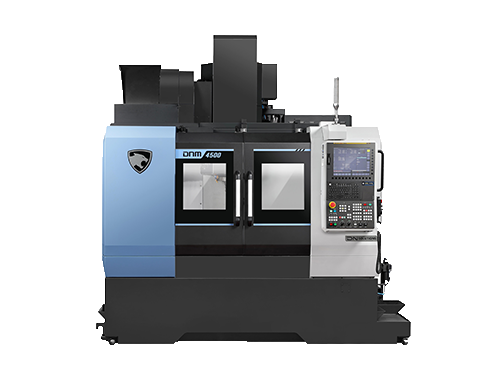
Doosan DNM4500 4AX

Bridgeport VMC1000 4AX

Mazak Quick Turn 200MY

CMZ TL20 MS

CMZ C20 YS
